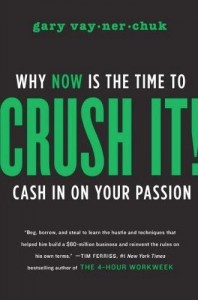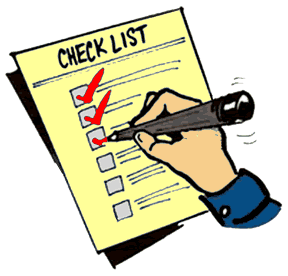 I wrote this brief review of “Crush It!” by Gary Vaynerchuck on another blog more than a year ago. My knowledge and use of social media has come a long way since then. I’ll post reviews of other books I’ve read that have more of the “how to’s” but this is the book to read if you want to know “why to”.
I wrote this brief review of “Crush It!” by Gary Vaynerchuck on another blog more than a year ago. My knowledge and use of social media has come a long way since then. I’ll post reviews of other books I’ve read that have more of the “how to’s” but this is the book to read if you want to know “why to”.
—
I’d heard a lot of good things about “Crush It!” and finally downloaded it (kindle for PC, in case you’re curious). I’m fairly new to the world of social media marketing so I was surprised at how much I already knew and how much I was already doing.
After reading Crush It!, I now know (a) social media marketing is not a passing fad, (b) properly implemented, it’s an incredibly powerful way to build almost any kind of business, and (c) it’s not that complicated. In other words, if you market something on the Internet, or you want to, you need to add social media marketing to your marketing mix and it’s a lot easier than you may have thought.
Now, if you’re looking for a detailed manifesto on social media marketing, this isn’t it. It’s a great story and a compelling look at the power of social media marketing and worth it for that alone. Where it really shines, however, is in driving home the importance of finding your passion, your DNA as Vaynerchuk calls it, and building your brand, and your business, around that.
Vaynerchuk makes you think about who you are and what drives you. If you’re going to “crush” anything, it’s going to have to be something you are passionate about, or you won’t do it enough, or well enough, to cut through the noise and clutter that competes for the eyes and ears of your target market. If you don’t enjoy what you’re doing, you aren’t going to make it; if you do, the journey will be as rewarding as the destination.
A friend of mine often says, “if you do what you love and you love what you do, you’ll never work another day in your life.” Â No doubt Gary Vaynerchuk would agree.










